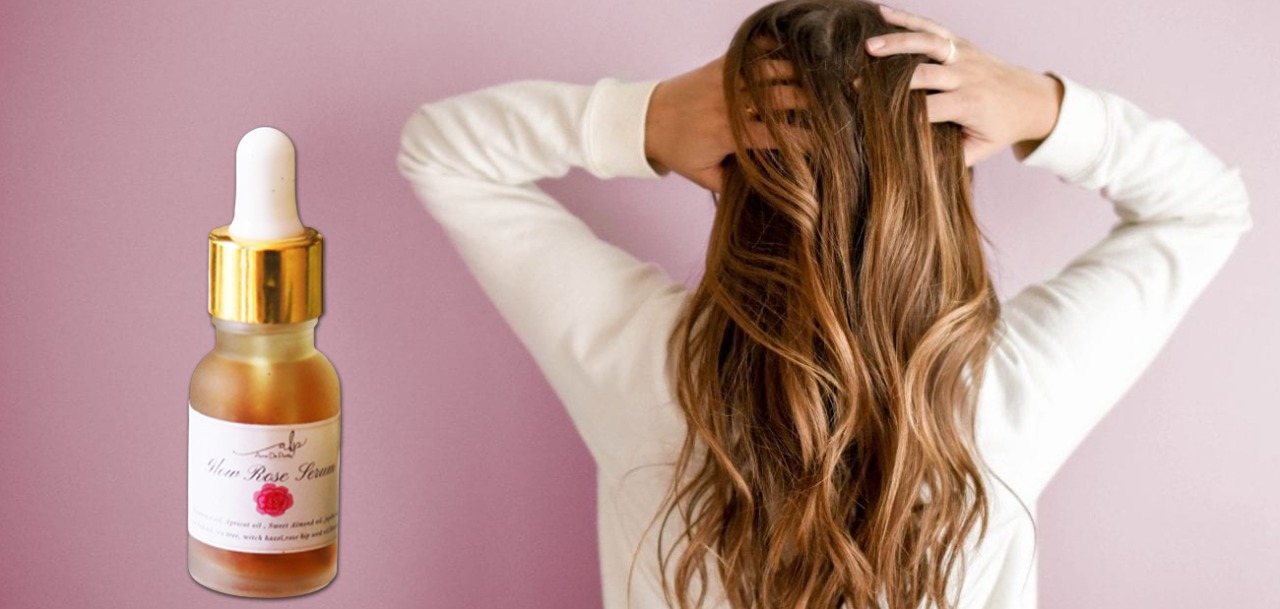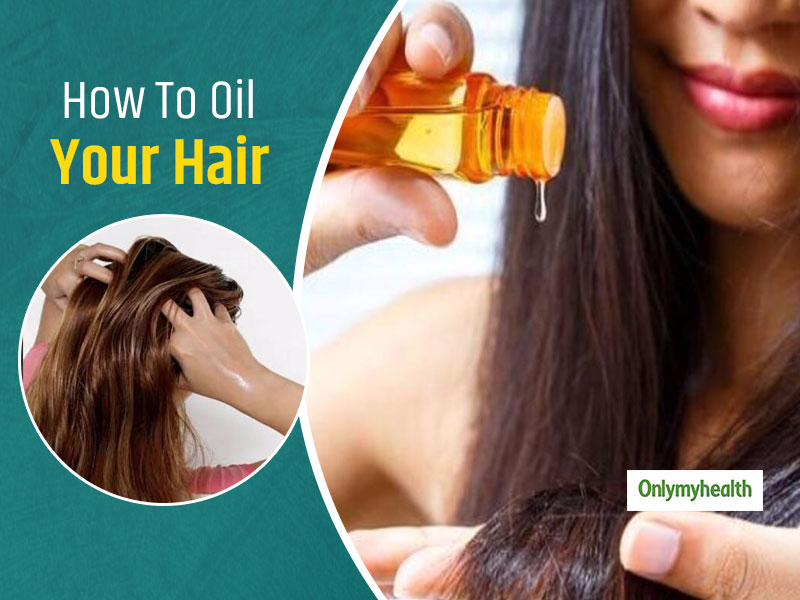Hair Care Oil and Benefits for Healthy and Beautiful Hair
Hair Care Oil and Benefits for Healthy and Beautiful Hair
This article provides a detailed explanation of the benefits of hair care oil for maintaining healthy, lustrous hair. It covers the causes of hair damage, types of hair care oil, how to use it, when to use it, and frequently asked questions about hair care oil. Whether you have dry, oily, or damaged hair, this article can help you choose the right hair care oil for your hair type and needs.

Introduction

Hair is considered an important aspect of physical appearance for both men and women. Therefore, it is not surprising that people invest a significant amount of time and money in maintaining their hair. However, exposure to environmental pollutants, chemicals, and harsh weather conditions can lead to hair damage, making it difficult to maintain healthy and lustrous hair.
Hair care oils are a natural solution for preventing and reversing hair damage, and have been used for centuries by people across the globe. In recent years, the popularity of hair care oils has grown significantly, with people turning to them as a safer and more effective alternative to chemical-laden hair care products.
This article aims to explore the benefits of hair care oils, the types of oils available, and how to use them to promote healthy hair growth. Whether you are struggling with hair damage or simply looking for a way to maintain healthy hair, this article will provide you with all the information you need to make an informed decision about incorporating hair care oils into your hair care routine.
Causes of Hair Damage
- Heat styling: The use of hot tools such as hair straighteners, curling irons, and hair dryers can damage the hair cuticle, leading to dryness, breakage, and split ends.
- Chemical treatments: Chemical treatments such as hair coloring, perming, and relaxing can cause damage to the hair shaft, making it weak and prone to breakage.
- Environmental factors: Exposure to harsh weather conditions, pollution, and UV radiation can strip the hair of its natural oils, leading to dryness, breakage, and split ends.
- Poor nutrition: A diet lacking in essential nutrients such as vitamins, minerals, and protein can result in weak and dull hair.
- Over-washing: Over-washing the hair can strip it of its natural oils, leading to dryness and breakage.
- Over-brushing: Brushing the hair too vigorously can cause damage to the hair cuticle, leading to breakage and split ends.
- Genetics: Some people are more prone to hair damage due to their genetic makeup.
Read About Dandruff Treatment in Ayurveda: Natural Remedies
Benefits of Hair Care Oil
- Moisturizes the hair: Hair care oils are excellent moisturizers that can help prevent dryness and breakage. They penetrate deep into the hair shaft, nourishing it from within and providing it with the essential nutrients it needs to remain healthy and strong.
- Repairs damage: Hair care oils are rich in antioxidants and other nutrients that can help repair damage to the hair caused by heat styling, chemical treatments, and environmental factors. They can also help prevent split ends, breakage, and frizz, making the hair look and feel healthier.
- Promotes healthy hair growth: Hair care oils contain essential fatty acids such as omega-3 and omega-6, which can help promote healthy hair growth. These fatty acids are essential for maintaining a healthy scalp, which is crucial for promoting hair growth.
- Reduces dandruff: Some hair care oils such as tea tree oil, neem oil, and peppermint oil have anti-fungal and anti-bacterial properties that can help reduce dandruff and other scalp infections.
- Enhances hair texture: Hair care oils can help enhance the texture of the hair, making it smoother, softer, and more manageable. They can also help add shine to the hair, making it look healthier and more vibrant.
- Protects against environmental damage: Hair care oils can help protect the hair from environmental damage such as pollution and UV radiation. They form a protective barrier around the hair shaft, preventing damage and keeping the hair looking and feeling healthy.
- Improves scalp health: Hair care oils can help improve scalp health by moisturizing the scalp, reducing inflammation, and promoting healthy blood circulation. A healthy scalp is crucial for promoting healthy hair growth and preventing hair loss.
Types of Hair Care Oil

- Coconut oil: Coconut oil is one of the most popular hair care oils due to its ability to penetrate the hair shaft and provide deep nourishment. It is rich in lauric acid, which helps strengthen and condition the hair, and has antibacterial and antifungal properties that can help reduce dandruff and other scalp infections.
- Argan oil: Argan oil is a lightweight oil that is rich in vitamin E and antioxidants. It helps moisturize and strengthen the hair, reduce frizz, and add shine. It is also a great oil for protecting the hair from environmental damage.
- Jojoba oil: Jojoba oil is similar in composition to the natural oils produced by the scalp, making it an excellent oil for moisturizing and conditioning the hair. It helps regulate oil production, reduce dandruff, and promote healthy hair growth.
- Olive oil: Olive oil is a heavy oil that is rich in fatty acids and antioxidants. It helps moisturize and strengthen the hair, reduce frizz, and add shine. It is also a great oil for protecting the hair from environmental damage.
- Castor oil: Castor oil is a thick, sticky oil that is rich in ricinoleic acid. It helps moisturize and condition the hair, promote healthy hair growth, and reduce dandruff and other scalp infections.
- Almond oil: Almond oil is a lightweight oil that is rich in vitamins E and D. It helps moisturize and condition the hair, reduce frizz, and promote healthy hair growth.
- Rosehip oil: Rosehip oil is a lightweight oil that is rich in vitamin C and antioxidants. It helps moisturize and condition the hair, reduce frizz, and promote healthy hair growth.
- Tea tree oil: Tea tree oil is a powerful oil that has antifungal and antibacterial properties. It helps reduce dandruff and other scalp infections, and promote healthy hair growth.
How to Use Hair Care Oil

- Pre-shampoo treatment: Apply hair oil to your scalp and hair, focusing on the ends, before shampooing. Leave the oil on for 15-30 minutes, then shampoo and condition as usual. This will help moisturize and protect your hair from the drying effects of shampoo.
- Leave-in conditioner: Apply hair oil to damp hair after shampooing and conditioning, focusing on the ends. This will help seal in moisture and protect your hair from heat styling and environmental damage.
- Styling aid: Apply a small amount of hair oil to your palms and run them through your hair to add shine and reduce frizz.
- Scalp massage: Apply hair oil to your scalp and gently massage for a few minutes. This will help improve circulation, reduce dandruff, and promote healthy hair growth.
When to Use Hair Care Oil
- Dry hair: If your hair feels dry, brittle, or lacks shine, using hair care oil can help moisturize and nourish your strands. Apply hair oil to your hair before washing, as a leave-in conditioner, or as a styling aid to add moisture and shine.
- Heat styling: Heat styling tools such as flat irons, curling irons, and blow dryers can damage your hair by stripping it of its natural oils. Applying hair care oil before heat styling can help protect your hair from damage by creating a barrier between your hair and the heat.
- Sun exposure: The sun's UV rays can damage your hair by causing it to become dry and brittle. Applying hair care oil before heading out into the sun can help protect your hair from damage and keep it moisturized.
- Chemical treatments: Chemical treatments such as coloring, perming, and straightening can cause damage to your hair by stripping it of its natural oils. Applying hair care oil before and after chemical treatments can help protect your hair from damage and keep it moisturized.
- Scalp health: Hair care oil can also be used to improve the health of your scalp. A healthy scalp is essential for healthy hair growth. Massaging hair oil into your scalp can help improve circulation, reduce dandruff, and promote healthy hair growth.


Post a Comment